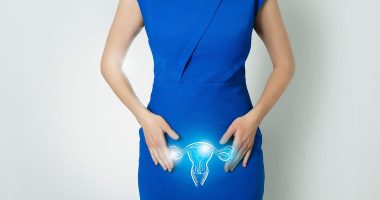Share this @internewscast.com
People with one of five conditions are the most likely to receive up to £749.80 a month in payments from the Department for Work and Pensions (DWP). These conditions top the list of those eligible for Personal Independence Payment (PIP).
Around 3.7 million people across Great Britain are currently receiving additional financial aid through PIP. And, as reported by the Daily Record, more than 20,000 Scots on PIP will see their award transferred to the Adult Disability Payment (ADP).
PIP and ADP offer weekly support ranging from £29.20 to £187.45, which equates to £116.80 or £749.80 every four-week pay period. These disability benefits aim to assist individuals with the extra costs associated with living with a disability, long-term illness, or physical or mental health condition.
Many may not realise that PIP and ADP can provide assistance for over 500 health conditions. Both benefits could help individuals with daily living tasks or mobility, or both.
The disability benefit is determined by how a person’s health condition impacts their ability to perform daily living tasks such as cooking, washing, eating, dressing and interacting with others in a safe and timely manner. There are also awards available to assist if you have difficulty moving around.
This implies that each claim for PIP or ADP is unique to the individual applicant, which could potentially assist those considering making a new claim to initiate the process. Here’s a comprehensive overview of PIP and ADP, including the five most commonly claimed conditions and the primary disabling conditions, as categorised by the DWP.
PIP cannot be backdated, but payments commence from the date the claim was lodged, to account for the processing time at the DWP.
Five most commonly recorded PIP health conditions
These are the main disabling conditions recorded by the DWP at the end of January, 2025.
Psychiatric disorder
1,421,753 claimants (37%)
This includes mixed anxiety, stress, depressive and mood disorders, OCD and cognitive disorders.
Musculoskeletal disease (general)
697,476 claimants (20%)
This includes muscle or joint pain and arthritic conditions.
Neurological disease
472,121 claimants (13%)
This includes muscular dystrophy, epilepsy, headache, multiple sclerosis, neuropathy and other movement disorders.
Musculoskeletal disease (regional)
440,684 claimants (12%)
This includes neck, back, shoulders, elbow, wrists, hands, hip, knee and ankle pain.
Respiratory disease
137,957 claimants (4%)
This includes asthma, diseases of the upper respiratory tract, pulmonary fibrosis and cystic fibrosis.
Disabling conditions recorded by DWP
These are the main disability categories, the umbrella term by which more than 530 other conditions fall under. This list is only an overview of conditions, disorders and diseases and how the DWP lists the main disabilities being claimed for:
- Haematological Disease
- Infectious disease
- Malignant disease
- Metabolic disease
- Psychiatric disorders
- Neurological disease
- Visual disease
- Hearing disorders
- Cardiovascular disease
- Gastrointestinal disease
- Diseases of the liver, gallbladder, biliary tract
- Skin disease
- Musculoskeletal disease (general)
- Musculoskeletal disease (regional)
- Autoimmune disease (connective tissue disorders)
- Genitourinary disease
- Endocrine disease
- Respiratory disease
- Multisystem and extremes of age
- Diseases of the immune system
- Unknown or missing
The total number of PIP claimants as of January 2025 were 3,694,536.
You can make a new claim by contacting the DWP. You should find all the information you need to apply on the GOV.UK website here.
















